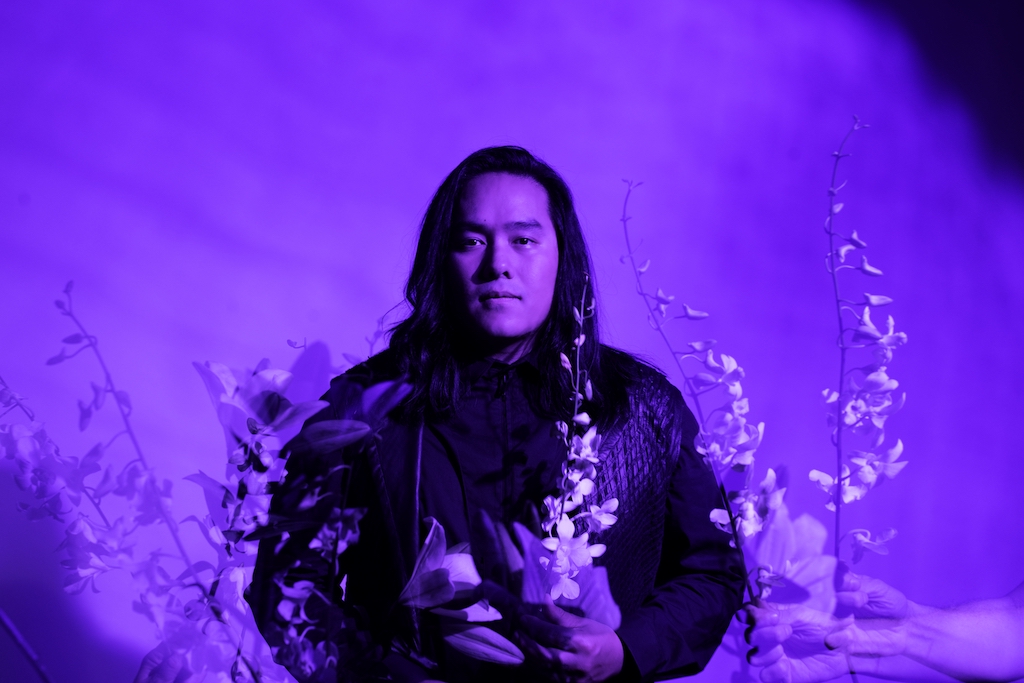On November 6th, when Edmonton audiences see Oji-Cree singer-songwriter Aysanabee take the stage at Double Dragon, they’ll witness an artist in a state of change. On the heels of two successful albums — his 2022 breakout record Watin and 2023 followup, which won him two Junos (Songwriter of the Year and Alternative Album of the Year) — he’s back with Edge of the Earth.
The album builds on the sound the Sandy Lake First Nation artist has spent his career developing but delves deeper into where he is going and what he’s ready to leave behind. It opens with the song “Embers,” which quickly sets the sonic and lyrical tone for the record and showcases Aysanabee’s rich and resonant voice. “People change, we’re not meant to stay the same / Our hearts break honey, that is how they’re made,” he sings early in the track. The lyrics suggest the end of a relationship, potentially a romantic one, and establish a theme that runs through the album.
In “Home,” the soulful third track on the album, Aysanabee sings, “We can’t go back, we can’t go back, we can’t go back / And honey, I’m okay with that” — again alluding to things better left in the past. In both songs — and in tracks like “Gone Baby Gone,” an up-tempo single that is impossible to not want to dance to — the lyrics hint at lost love. But as the album progresses, the endings Aysanabee sings about — and the beginnings they inevitably beget — start to feel like more than just material for breakup songs.
For an artist who has gone from writing songs in a camper van to winning Junos in a matter of years, Aysanabee’s focus on change makes sense. Edge of the Earth is also more collaborative than his previous albums, and inviting others into his creative process must be an adjustment — an intimate one.
But as an Indigenous musician from Northern Ontario, Aysanabee has also had to contend with the cultural constraints often imposed on racialized artists — the expectation of trauma narratives devoid of hope or lightness. On Edge of the Earth, Aysanabee seems to be offering a version of himself that is true to the heritage he explored on Watin, an album born largely of interviews with his grandfather, but free of the pigeonholing that dogs so many Indigenous artists.
